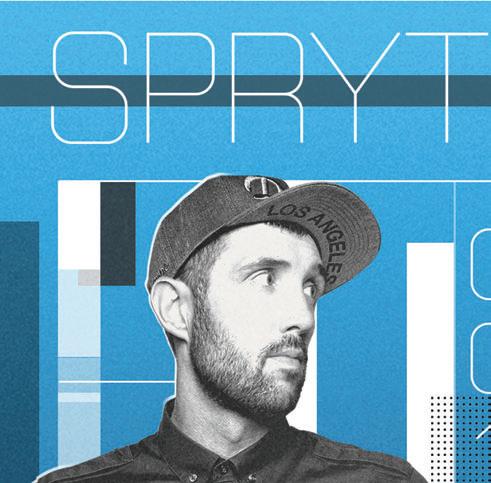
8 minute read
NEws
from Sept. 7, 2017
Drug law challengeD
A new state law under which Nevada tracks insulin prices has been challenged in court.
Advertisement
At this year’s Nevada Legislature, pharmaceutical corporation lobbyists poured in when lawmakers started processing a measure providing for monitoring drug prices.
As enacted, the new law requires drugmakers that raise list prices to disclose information about the costs of manufacturing and selling the drugs. The law prohibits gag deals under which pharmacists are forbidden to inform patients of cost-saving choices. Pharmacy benefit managers must disclose information about rebates they negotiate. Pharmaceutical sales representatives must register in Nevada and disclose information about their discussions with physicians. And patient advocacy groups must disclose when they are funded by the drug makers.
Such funding for patient advocacy groups was at issue during the legislature when some of them failed to support the bill. Kaiser Health News reported, “Prominent patient advocacy groups, like the American Diabetes Association, have maintained stony silence while diabetes patients championed the bill and lobbied the legislature during this debate—a silence that patients and experts say stems from financial ties. … Generally speaking, their advocacy focuses on pressuring insurers to pay the price of insulin, not protesting price rises.” The original bill was vetoed by Gov. Brian Sandoval when sponsored by a female senator, then approved by Sandoval when modified slightly and sponsored by a male senator.
The lawsuit was filed by two trade groups, Pharmaceutical Research and Manufacturers of America and the Biotechnology Innovation Organization. The suit claims the law breaches trade secrets but does not explain how.
Slave labor Day?
This seems like a particularly untimely moment to express sympathy for the Confederacy, but the tone of Virginia City’s Labor Day Parade may be changing in such a direction.
A group called Comstock Civil War Reenactors has a website that calls the celebration “Civil War Days” and contains an apologist version of the causes of the Civil War. It’s not clear whether the Reenactors speak for the Parade—a Virginia City Tourism Commission website still calls it the Labor Day Parade—but Sparks Tribune columnist Andrew Barbano accused the Reenactors of commemorating “Slave Labor Day.”
Reno’s Central Labor Council and individual unions have in the past promoted the VC parade. The first mining unions in the West began on the Comstock.
StuDent reSignS job
Peter Cytanovic, the University of Nevada, Reno student who participated nonviolently in the Charlottesville demonstration, has resigned from the Campus Escort Service because escort staff or student leaders pressured him, according to the Reno Gazette-Journal.
A campus administration spokeswoman had previously said Cytanovic was in a work program where he rotated from one job to another. It is not clear whether he has resigned from that program or just from the escort service.
UNR’s Sagebrush quoted student body president Noah Teixeira: “I think that you can’t have him working [in the escort service] because it literally destroys the program. Students are supposed to be safe getting into vans, and if you have someone that perpetuates hate speech, then you kind of make the program unable to achieve what it’s supposed to.”
Teixeira did not specify what in Cytanovic’s past behavior caused a lack of safety for students.
—Dennis Myers
Republicans in Congress support trusting U.S. corporations to protect internet customer interests and privacy.
PHOTO/DENNIS MYERS
Net loss?
Keeping the neutral in neutrality
the Federal communications Commissions’ comment period on net neutrality closed last week, and one of the last comments filed broke Apple’s long silence on the topic, with the tech corporation taking dead aim at the position espoused by U.S. Sen. Dean Heller of the Senate Commerce Committee.
Nevada’s Heller and U.S. Rep. Mark Amodei, who represents Northern Nevada in the House, both oppose regulation to protect consumers from corporate monoliths like Verizon that are anxious to create “fast lanes” for the internet, available only to those who pay for them. Under net neutrality, a barber’s information travels at the same speed as General Motors’, for the same price.
“We work hard to build great products, and what consumers do with those tools is up to them—not Apple, and not broadband providers,” wrote Apple Vice President Cynthia Hogan in the comment filed with the FCC.
“Apple’s stance on the issue dovetails with that of many tech companies who claim that, given the opportunity, internet providers could strangle new apps and websites by forcing them to pay fees or by prioritizing better, faster service for apps that the providers own or prefer. Internet providers have said that by exploring new business models, consumers could be better served—and carriers would find new ways of making money at a time when most Americans are already paying for internet service,” reported the Chicago Tribune.
Net neutrality regulations adopted by the FCC during the Obama administration have been targeted by Republicans, and the FCC has been taking comments on whether a measure overturning the regulations should be overturned.
Net neutrality is the term that describes the principle that internet service providers (ISPs), a.k.a. broadband providers, must give equal treatment to the communications and data flowing over their networks. If net neutrality is not guaranteed by government regulation, corporations are free to do as they will.
ISPs are treated as common carriers under Title II of the Telecommunications Act. Common carriers are companies that transport people or property—in this case information.
Title II also deals with privacy, and as a result both net neutrality and ISP privacy regulations have been treated in tandem. Earlier this year Congress overrode regulations protecting consumers from the selling of their private customer data, including app usage, browsing history and Social Security numbers to other firms.
That happened after Republican U.S. Sen. Jeff Flake of Arizona sponsored S.J. Res. 34: “A joint resolution providing for congressional disapproval under chapter 8 of title 5, United States Code, of the rule submitted by the Federal Communications Commission relating to ‘Protecting the Privacy of Customers of Broadband and Other Telecommunications Services.’”
The resolution, approved by the Senate in March in a 50-to-48 vote, blocked FCC enforcement of a rule protecting consumer privacy.
Verizon has disclosed customer information to the National Security Agency. AT&T has sold consumer call information to the Drug Enforcement Administration and Central Intelligence Agency. Heller and Amodei both joined in dismantling privacy protection.
The Center for Responsive Politics (CPR), a non-profit D.C. research organization, tracks the impact of money on politicians and the public policy they make. Heller, CRP reports, took in a whopping $372,250 from telecommunications contributors over the course of his congressional career, and $93,500 just in 2016. Subsequently, billboards were erected reading, “Heller betrayed you. He took $345,250 from telecoms, then he voted to let them sell your web history without your permission. Ask him why, call: 775-738-2001 FIGHT FOR THE FUTURE SaveBroadbandPrivacy.org.”
The Flake resolution was voted on by the House on March 28 and was approved 215-to-205. Donald Trump signed it on April 3.
According to CRP, during his U.S. House career, Amodei has received $69,000 in campaign money from telecommunications contributors. During 2016 alone, he has received $19,500.
CRP correlated money with votes. Among Republicans, the average career contributions from telecom corporations totaled $137,908 for those who voted for
the measure. Republicans who voted against it received only $76,984. Among Democrats, those who voted no received an average of $131,788. There were no yes votes from the Democrats.
Heller and Amodei were the only yea votes from Nevada. Reps. Dina Titus, Jacky Rosen and Ruben Kihuen and Sen. Catherine Cortez Masto voted not to block the privacy regulation.
That still leaves the basic FCC net neutrality rule. With public comment now closed, this fight will take place within the FCC itself, with the possibility of congressional action looming if Congress does not like the outcome, as it did on privacy—and Heller himself has threatened congressional action if he does not like the outcome of a “long regulatory process.”
Heller wields the term regulation as a weapon. During the Obama administration, he said, “By calling for Title II classification for internet service providers, the President is doubling down on the ‘regulate first’ mentality that inhibits innovation and growth in the tech industry. The President’s approach takes dynamic technology and turns it into another utility like electricity and water. And just like power and water, today’s internet would become stagnant instead of remaining vibrant.”
Nevada Controller Ron Knecht—the guy who pays state government’s bills—has gotten in on this debate, arguing that because there are so many internet service providers (ISPs), there is no need for government regulation. “I spent 17 years as a principal economist for the public utility commissions of Nevada and California, plus more years consulting to other commissions,” he wrote recently in an essay sent out to state newspapers. “I have some expertise in the theory and economics of utility regulation, and I know there’s no defensible reason to make the internet a regulated utility.”
However, the notion of numerous ISPs is rapidly becoming a thing of the past. In a 2015 report on the top five consolidating industries, research firm IBISWorld reported that over a five year period, “total [ISP] industry enterprises declined at an annualized rate of 2.3 percent to 771 operators … while industry employment grew at a slim 0.9 percent annualized rate to total 264,674 workers. … The United States Department of Justice and the Federal Communications Commission have vocally opposed mergers of national carriers.”
According to Quartz Media, “If those first years of the internet were marked by a dramatic expansion of players in the telecom industry, its later ones have been marked by contraction, leading to a relatively small and getting-smaller concentration of companies.”
Forbes columnist Warren Grimes wrote at the time that telecom mergers were creating pressure for regulation: “The pending deals will not result in monopoly control of programming, but they are troubling steps toward less competition, fewer choices, and more dominance by ever-more-powerful distributors over programming content.”
Neither Heller or Amodei have done anything to reduce mergers and acquisitions.Ω
Memorial



The range of acquaintances of the late author and journalism professor Jake Highton could be seen in the crowd at his memorial in the University of Nevada, Reno library rotunda. Seen here are German professor emeritus Grant Leneaux, former governor’s press secretary Greg Bortolin, art professor Howard Rosenberg, former Reno Gazette-Journal publisher Warren Lerude, former Reno television anchor and Highton student Lise Mousel, and former chamber of commerce official David Howard.











